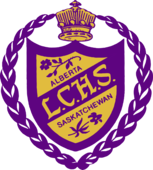Administrative Procedure 311
Harassment and Sexual Harassment (Students)
Background
Lloydminster Public School Division recognises its responsibility to provide safe, caring and acceptable learning environments in our schools. The Division believes that all members of the learning community have the right to attend school and school related activities free from harassment and sexual harassment. The division is committed to ensuring the safety of all and expects its teachers, employees, students and all members of its community to neither participate in or condone such behavior.
Harassment, as defined by the Human Rights Commission, is a form of discrimination. It includes any persistent unwanted physical or verbal behaviour that offends or humiliates someone. It is often based upon culture, race, religion, ethnicity, sexual orientation, gender identity, or other factors.
Sexual Harassment is a form of harassment that is of a sexual nature. This may include:
- indication by a person in a position of power that sexual favors are a condition of advancement.
- deliberate touching, grabbing, pushing or unsolicited contact including patting or pinching.
- repeated or unwanted sexual comments, or comments which are found objectionable and cause discomfort.
- persistent propositions, invitations or uninvited pressure for dates.
- gender based insults or taunts
- display of suggestive pictures or other material.
- uninvited communication or
- leering or whistling
Procedures
This procedure will be followed when any complaint brought to the Principal meets the above definition of harassment or sexual harassment (protected grounds under the Human Rights Code).
Safety in Lloydminster Public Schools is a priority for all. An environment based upon respect and rapport is created by members of each school community. All members are expected to interact with each other respectfully and model each other's positive relationship. In respectful learning communities all members feel safe, valued and accepted. This can be created through the following practices:
- Prevention: School Administration, in consultation with school staff, shall develop anti- harassment strategies and a prevention program which will include:
- Working toward a school culture that values respect, diversity, inclusion and safety.
- Promotion of Schools Student Code of Conduct
- Using the Saskatchewan Curriculum to provide students with education on harassment prevention, recognizing harassment behaviors, conflict resolution and fostering healthy relationships.
- Using the curriculum and other resources to support digital citizenship and promote digital citizenship as a component to address cyber concerns in relation to harassment. .
- School staff will maintain partnership with parents/caregivers/guardians both in the teaching of anti-harassment strategies. as well as in the reporting of harassment incidents.
- Any person to whom alleged harassment is reported, and which is resolved in an informal manner, shall make a written record summarizing the complaint and its resolution. The record shall be kept in a confidential, secured file, at the site for a period of three years. If no further harassment has been reported, the record will be destroyed.
- Investigation: If the matter cannot be resolved in an informal manner school administration shall:
- Interview those involved separately.
- Notify the parents of the students involved.
- Document and Complete the investigation process using the harassment and sexual harassment incident report form. Harassment and Sexual Harassment Incident Report Form
- Submit completed reports to the Superintendent of Student Services. Or
- Submit completed reports to the Superintendent of Human Resources.
The investigation may lead to disciplinary action keeping with the school division policies and provisions of The Education Act, 1995. If applicable, the RCMP may become involved.
- Follow Up Action: In all cases of harassment or sexual harassment, follow up actions will take place to support all individuals that are involved.
- Each situation of harassment will be addressed individually and will appropriately reflect:
- the context of the situation
- the age, development and maturity level of those involved
- the nature of the behaviors and potential relation to past incidents
- the frequency and severity of the behavior
- In the case of a student, parents of the individuals involved shall be notified.
- All involved will be monitored, supported and checked in on for a predetermined amount of time by a designated staff member. In the case of a student being the target of harassment, the Superintendent of Student Services will arrange for a school counselor to offer support.
- A check in with all involved, and a follow up with parents (if a student is involved) will take place 1 week following implementation of the plan.
- Remediation will be provided for all individuals involved in the incident.
- Should the harassing behaviors continue or escalate, progressive discipline will occur.
- Each situation of harassment will be addressed individually and will appropriately reflect:
- The Superintendent of Student Services will review all plans with School Administration. Plans will be adjusted as needed.
- All records relating to the complaint and investigation shall be kept on file for 5 years (in the case of staff) or 7 years post graduation (in the case of students) at Division Office.
- Other Proceedings: Nothing in the administrative procedure shall be construed as preventing an individual from dealing with an incident of harassment by:
- Filing a complaint under the Saskatchewan or Alberta Human Rights Code or any other applicable legislation, or
- Reporting the incident to the police or other authorities if the circumstances warrant.
- Confidentaility: All complaints will be held in strict confidence. Information will only be shared for the purposes of the investigation or the imposition of discipline.
- Complaints Made in Good Faith: Where the harassment has not been substantiated, no action will be taken against an individual who has made the complaint in good faith.
- If, upon investigation, the Division should find that false accusations of harassment were made knowingly and with malice, the division may impose upon the offender disciplinary action up to and including expulsion, or termination.
Reference:
Canadian Human Rights Commission, AP 314, Sections 85,87,108,109,150,151,152,153,154,155,175,231 Education Act
Revised:
June, 2009, December 2017, October 2024





























